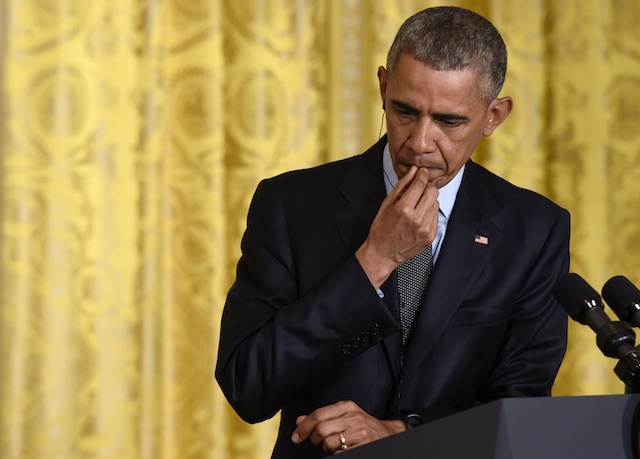In its just-released 2012 Trade Policy Agenda, the Obama administration took credit for recent accomplishments, such as completing a free-trade agreement with South Korea, which went into force last week. It also looked forward to future possibilities, such as finishing the Trans-Pacific Partnership (TPP), a pact that would improve the economic ties of the Pacific Rim nations.
Yet the administration said hardly a word about the one thing it will need before it can achieve any new breakthroughs in trade diplomacy: Trade Promotion Authority (TPA), which calls on Congress to give pending trade agreements an up-or-down vote in a reasonable period of time.
In truth, the nearly 400-page report devoted a sentence to TPA: “The Obama administration will explore issues regarding additional trade promotion authority necessary to approve the TPP and future trade agreements.”
A whole sentence!
That’s a pretty weak commitment. When politicians promise to “explore issues,” you can bet they aren’t about to embark on courageous voyages of discovery. en comptes, they’re hoping the issues in question will go away.
Here’s a sentence of my own: Without TPA, there can be no serious trade policy discussion–or at least not one that’s worth much. When President Bush had it, his negotiators were able to forge several pacts, including the one with South Korea. President Obama should also have TPA, as should all presidents.
This month, we’re seeing a clear picture of how trade expansion helps the U.S. economia. As our new trade agreement with South Korea went into effect, Evan Ramstad of the Wall Street Journal reported from the docks: “In Busan, South Korea’s second-largest port city, several warehouses in a customs holding area were filled with frozen fish from the U.S., ready for official entry Thursday when a 10 percent tariff drops to zero.”
An official estimated that 2,000 tons of fish from the United States were about to enter South Korea, which is American’s eighth-largest trading partner. The tariff on cars built in the United States dropped from 8 per cent a 4 per cent, making Fords and Chevys more affordable in Seoul. This is one reason why the United Autoworkers Union set aside its traditional opposition to trade agreements and endorsed this one.
The Obama administration expects that when the trade deal is fully implemented, it will boost U.S. exports to South Korea by $11 billion annually. It will also support 70,000 American jobs. That’s more jobs than there are people in many medium-sized cities.
As it happens, a bunch of those jobs really will be in Iowa, as well as other areas that depend on farming. Last fall, when Congress approved the free-trade agreement with South Korea, it also approved deals with Colombia and Panama. When the Latin American pacts go into effect, they will combine with the South Korean trade agreement to boost U.S. agricultural exports by $2.3 mil milions per any.
These gains are essential if President Obama is to meet his goal of doubling U.S. exports by 2015–a pledge he made two years ago, in his State of the Union address.
Success also will require new agreements, so that products and services can flow more freely between the United States and foreign markets. la 2012 Trade Policy Agenda rightly points to TPP, a multilateral agreement that currently includes the United States and eight partners. The markets in these nations are worth $89 billion to American exporters. They currently support half a million U.S. feines.
By lowering tariffs for American goods and services, TPP will create even more economic opportunity. If Canada, Japó, and Mexico enter the talks–something they may do soon–the potential gains rise considerably.
Yet none of it will matter unless the president has Trade Promotion Authority. President Obama should ask for it–de fet, he should demand it, far more vigorously than he has in the 2012 Trade Policy Agenda.
Ara mateix, President Obama’s legacy on trade is to have completed the unfinished business of the Bush years. If the president wants to make gains of his own–and TPP surely counts–he’ll need Trade Promotion Authority.
The first step is to ask for it.
Dean Kleckner chairs Truth About Trade & tecnologia www.truthabouttrade.org

